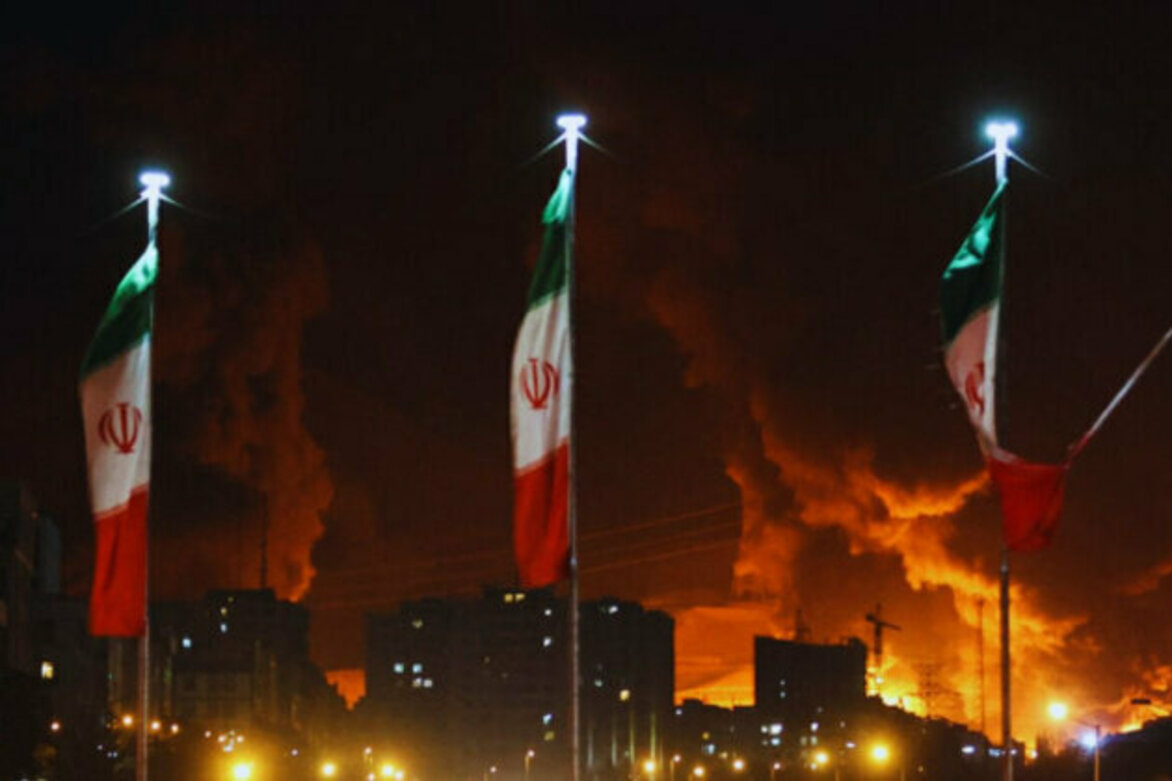Hundreds Dead as Israel and Iran Trade Missile Strikes for Third Day
Novinite.com
16 Jun 2025

The conflict between Israel and Iran has entered its third day with no signs of de-escalation. Both countries continued launching missile attacks on Sunday and into early Monday, defying calls for restraint. In the early hours of Monday, Iran unleashed another wave of ballistic missiles across Israel, setting off air raid sirens nationwide. Emergency services reported at least 67 people injured as falling shrapnel and direct hits struck residential areas in the country's central and northern regions.
In Petah Tikva, just outside Tel Aviv, Iranian missiles struck a residential block, scorching concrete walls and shattering windows. Several apartments were left heavily damaged. Rescue crews continued digging through the rubble late into the morning. On Sunday night, fires still raged in the port city of Haifa following earlier missile strikes. One of Israel's major oil refineries in the city sustained damage. Israel's main international airport remains closed for a third day, with airspace still restricted due to the ongoing barrages.
The combined death toll from both sides has surpassed 230 since Friday, when Israel launched its initial strike, prompting the current escalation. Iran has confirmed 224 fatalities and at least 1,277 injured, though officials did not clarify the split between civilian and military casualties. In contrast, Israeli authorities reported 14 deaths and over 390 wounded. However, Iran claims the civilian toll is significantly higher, alleging that around 90 percent of its casualties are non-combatants.
Israel said its latest operations struck Iranian military targets including the Defence Ministry, missile launch facilities, and air defence component factories. Tehran confirmed that more high-ranking officials were killed, including IRGC intelligence chief Mohammad Kazemi. Iranian media said strikes also targeted Kazemi's deputy and other Revolutionary Guard commanders. Yet the impact of Israeli strikes appears to have gone beyond military infrastructure. Iran's government reported that missiles hit several sensitive locations - including the Foreign Ministry and multiple energy sites. Fires erupted at the Shahran oil depot north of Tehran and a southern fuel tank, increasing fears of a broader assault on Iran's already-sanctioned oil industry.
On the Israeli side, authorities say Iran has launched over 270 missiles since Friday. While most were intercepted, 22 managed to break through Israel's layered missile defences, striking residential neighborhoods and causing widespread damage. In Bat Yam, a coastal city south of Tel Aviv, rescue workers said more than 60 buildings were hit. Prime Minister Benjamin Netanyahu, speaking from a damaged apartment block in the city, vowed retaliation. ?Iran will pay a heavy price for the murder of civilians, women and children,? he said.
Sunday evening saw a significant escalation as Iranian missiles lit up the skies over Haifa and nearby Tamra, where four women were reportedly killed. In Haifa alone, at least 15 people were wounded. Reports also emerged of missile impacts in Tel Aviv's eastern districts. Earlier that day, Tehran residents were shaken by blasts across the capital. Missiles hit locations in northern neighborhoods such as Niavaran and Tajrish, as well as central areas near Valiasr and Hafte Tir squares. Iranian sources confirmed further Israeli attacks on Shiraz, Isfahan, and the Defence Ministry's military base in those cities. The Israeli army also claimed responsibility for destroying an aerial refuelling aircraft at Mashhad Airport in Iran's east - one of its most long-range operations yet.
Al Jazeera's Tehran correspondent noted that the scale of these Israeli strikes is unmatched since the end of the Iran-Iraq War in 1988. Authorities in the Iranian capital have designated metro stations, mosques, and schools as emergency shelters. However, locals say many of these facilities are not adequately equipped or structurally safe.
From a diplomatic standpoint, the window for a peaceful resolution appears to be narrowing. A planned sixth round of nuclear talks between the United States and Iran was cancelled Sunday in Oman following Israel's initial strike. Iran maintains it does not seek a broader regional war but will defend itself if necessary. Foreign Minister Abbas Araghchi said that if Israeli attacks cease, Iranian retaliation will also stop. However, he accused the U.S. of complicity in the strikes, claiming American weapons and logistical support were vital to the Israeli operations.
Speaking at a news conference, Araghchi emphasized Iran's opposition to nuclear weapons but insisted on its right to peaceful nuclear development. He revealed that Tehran had prepared to make significant concessions in the now-cancelled talks. Instead, he argued, Israel deliberately derailed the negotiations. Araghchi pointed to remarks by Netanyahu that suggested full transparency with the Trump administration ahead of Israel's attacks, calling the U.S. ?a partner? in the assault.
Meanwhile, President Donald Trump made multiple statements throughout the weekend. He warned Iran not to target U.S. assets, promising an overwhelming military response if provoked. Still, he floated the idea of peace coming 'soon,? claiming he could broker a deal between the two adversaries. Trump even suggested Russian President Vladimir Putin might act as a mediator, noting they had discussed the matter in a recent phone call.
The European Union has scheduled an emergency meeting of its foreign ministers for Tuesday to coordinate a diplomatic response. EU foreign policy chief Kaja Kallas said the video conference would allow the bloc to explore avenues for easing tensions and reviving the nuclear deal. Talks will also be a key focus at the G7 summit opening Monday in Canada.
Despite escalating rhetoric and continuous attacks, both sides have signalled some interest in halting the cycle of violence - though neither appears ready to back down first. As the missile strikes continue to claim more lives and damage vital infrastructure, pressure is mounting from the international community to prevent further deterioration of the crisis.
Sources:
- Euronews
- Al Jazeera
- CNN
- "X"
